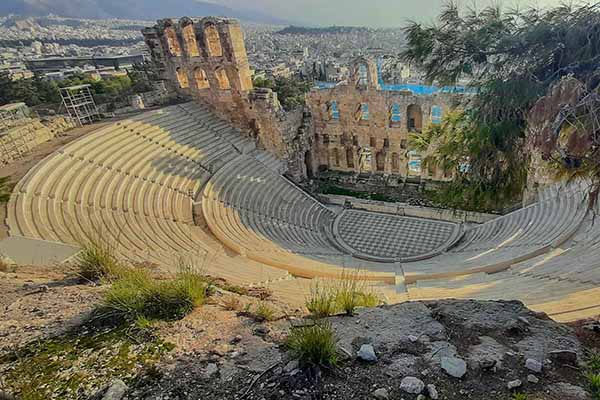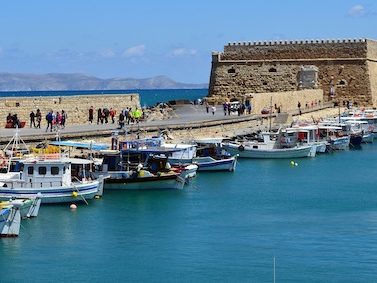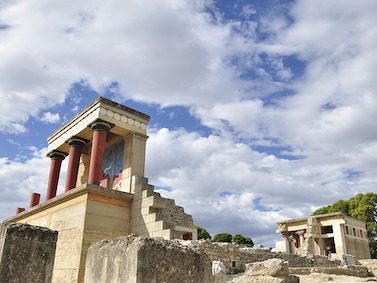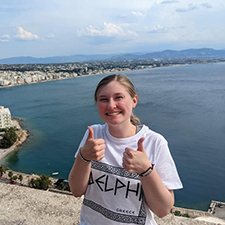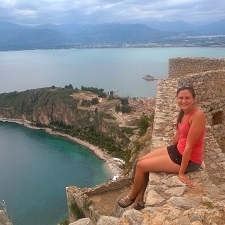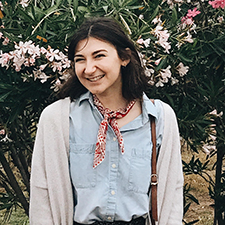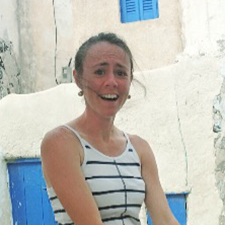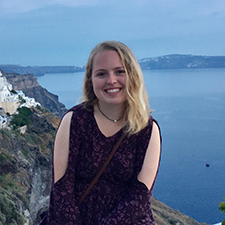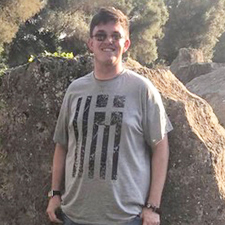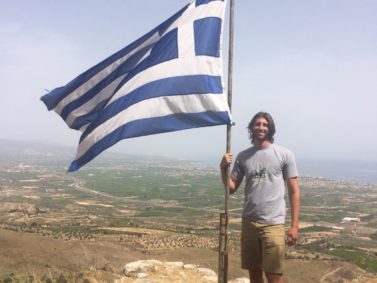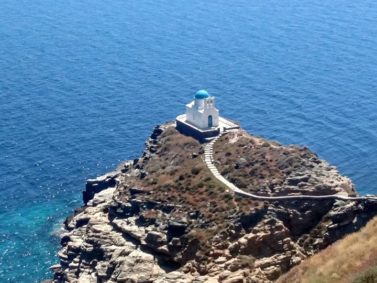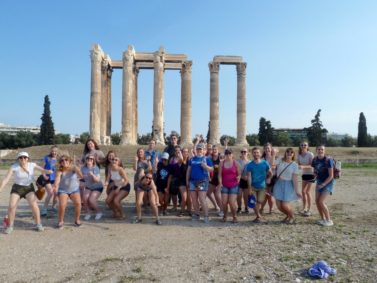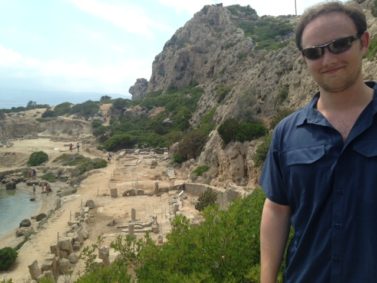Greece Winter
Dates
December 26, 2024 – January 6, 2025
Subjects
Classics, Chemistry, English, History, Gender & Women’s Studies
Deadlines
Aug. 1: Apply Early & Save $100
Sept. 15: Regular Deadline
Program Overview
Greece, a country of dramatic natural beauty and rich cultural traditions, provides students a true adventure as they learn about the ancient peoples whose literature, political ideas, philosophy, notions of health and well-being, religion, art and architecture continue to shape our lives. This winter program begins with an exploration of the capital, Athens before flying to the impressive Greek island of Crete. Note: Students should be aware that some excursions may be physically strenuous and involve walking over rocky terrain.
Note: Studying abroad likely is more physically strenuous than you are used to at home. KIIS study abroad programs typically involve approx. 5-10 miles of walking (approx. 10,000-20,000 steps) or the like in a day, including the possibility of walking, hiking, and climbing stairs in variable weather, over elevations at higher altitudes, and over rocky terrain. See Health & Wellness for more information.
All KIIS course credit is awarded by Western Kentucky University. Prior to your KIIS program, please speak with your home campus academic advisor and/or study abroad office to determine course equivalencies. Grades will be transferred to your home institution in late January after the completion of the program. Course offerings are subject to change according to enrollment. For more information, visit Transcripts & Grades.
What's Included
Program Cost: $3,275 + airfare
To help you budget, keep in mind that you are responsible for the cost of your textbooks & materials, passport fees ($165), two meals per day + personal expenses (approx. $400, or if you are an avid shopper, you may consider bringing additional funds), and any fees from your college/university.
Although KIIS tries to foresee all possible expenses in formulating program fees, please note that dramatic fluctuations in foreign currency valuations and/or airline surcharges may affect the total cost of the program.
Group Flight
Estimated Cost: $1,600 – $1,700
The Greece Winter program offers a group flight option where you can travel to/from Athens, Greece with other students and faculty. If you choose this option, KIIS will purchase a round-trip flight ticket for you. The flight cost will be added to your final program fee on November 1. The group flight will depart from Cincinnati or Louisville.
If not selecting the group flight, you are responsible to purchase your own roundtrip airfare.
The flight to Athens, Greece is overnight arriving the following morning. On the return, the flight from Greece to the USA departs and arrives on the same day.Visit Flights and Passports & Visas for more information.
Student Voices
Take Your Education Further
Description
Dates
December 26, 2024 – January 6, 2025
Subjects
Classics, Chemistry, English, History, Gender & Women’s Studies
Deadlines
Aug. 1: Apply Early & Save $100
Sept. 15: Regular Deadline
Program Overview
Greece, a country of dramatic natural beauty and rich cultural traditions, provides students a true adventure as they learn about the ancient peoples whose literature, political ideas, philosophy, notions of health and well-being, religion, art and architecture continue to shape our lives. This winter program begins with an exploration of the capital, Athens before flying to the impressive Greek island of Crete. Note: Students should be aware that some excursions may be physically strenuous and involve walking over rocky terrain.
Note: Studying abroad likely is more physically strenuous than you are used to at home. KIIS study abroad programs typically involve approx. 5-10 miles of walking (approx. 10,000-20,000 steps) or the like in a day, including the possibility of walking, hiking, and climbing stairs in variable weather, over elevations at higher altitudes, and over rocky terrain. See Health & Wellness for more information.
All KIIS course credit is awarded by Western Kentucky University. Prior to your KIIS program, please speak with your home campus academic advisor and/or study abroad office to determine course equivalencies. Grades will be transferred to your home institution in late January after the completion of the program. Course offerings are subject to change according to enrollment. For more information, visit Transcripts & Grades.
What's Included
Program Cost: $3,275 + airfare
To help you budget, keep in mind that you are responsible for the cost of your textbooks & materials, passport fees ($165), two meals per day + personal expenses (approx. $400, or if you are an avid shopper, you may consider bringing additional funds), and any fees from your college/university.
Although KIIS tries to foresee all possible expenses in formulating program fees, please note that dramatic fluctuations in foreign currency valuations and/or airline surcharges may affect the total cost of the program.
Group Flight
Estimated Cost: $1,600 – $1,700
The Greece Winter program offers a group flight option where you can travel to/from Athens, Greece with other students and faculty. If you choose this option, KIIS will purchase a round-trip flight ticket for you. The flight cost will be added to your final program fee on November 1. The group flight will depart from Cincinnati or Louisville.
If not selecting the group flight, you are responsible to purchase your own roundtrip airfare.
The flight to Athens, Greece is overnight arriving the following morning. On the return, the flight from Greece to the USA departs and arrives on the same day.Visit Flights and Passports & Visas for more information.


